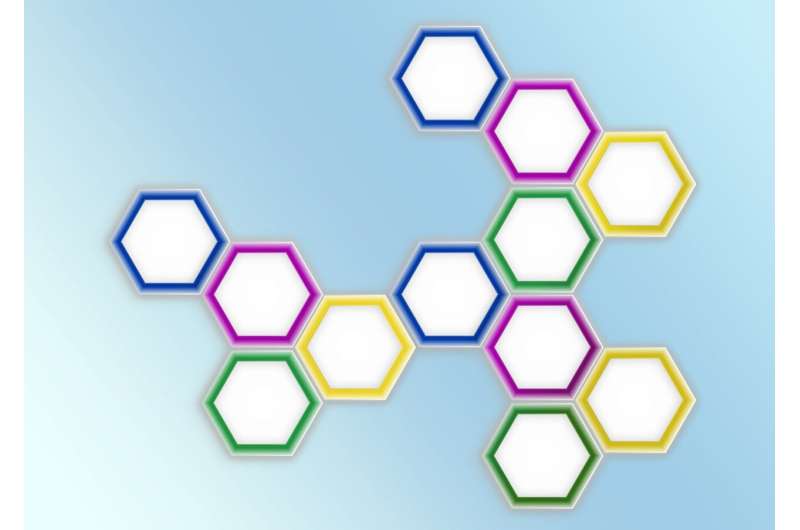This article has been reviewed according to Science X's editorial process and policies. Editors have highlighted the following attributes while ensuring the content's credibility:
fact-checked
peer-reviewed publication
trusted source
proofread
Scientists develop artificial molecules that behave like real ones

Scientists from the Radboud University have developed synthetic molecules that resemble real organic molecules. A collaboration of researchers, led by Alex Khajetoorians and Daniel Wegner, can now simulate the behavior of real molecules by using artificial molecules. In this way, they can tweak properties of molecules in ways that are normally difficult or unrealistic, and they can understand much better how molecules change.
Their paper is published in the journal Science.
Emil Sierda, who was in charge of conducting the experiments at Radboud University said, "A few years ago we had this crazy idea to build a quantum simulator. We wanted to create artificial molecules that resembled real molecules. So we developed a system in which we can trap electrons. Electrons surround a molecule like a cloud, and we used those trapped electrons to build an artificial molecule." The results the team found were astonishing. Sierda says, "The resemblance between what we built and real molecules was uncanny."
Changing molecules
Alex Khajetoorians, head of the Scanning Probe Microscopy (SPM) department at the Institute for Molecules and Materials of Radboud University said, "Making molecules is difficult enough. What is often harder, is to understand how certain molecules react, for example how they change when they are twisted or altered."
How molecules change and react is the basis of chemistry, and leads to chemical reactions, like the formation of water from hydrogen and oxygen. "We wanted to simulate molecules, so we could have the ultimate toolkit to bend them and tune them in ways that are nearly impossible with real molecules. In that way we can say something about real molecules, without making them, or without having to deal with the challenges they present, like their constantly changing shape."
Using this simulator, the researchers created an artificial version of one of the basic organic molecules in chemistry, benzene. Benzene is the first component for a number of chemicals, like styrene, which is used to make polystyrene. Khajetoorians says, "By making benzene, we simulated a textbook organic molecule, and built a molecule that is made up of elements that are not organic." In addition, the molecules are 10 times bigger than their real counterparts, which makes them easier to work with.
Practical uses
The uses of this new technique are endless. Daniel Wegner, assistant professor within the SPM department says, "We have only begun to imagine what we can use this for. We have so many ideas that it is hard to decide where to start." By using the simulator, scientists can understand molecules and their reactions much better, which will help in every scientific field imaginable.
Wegner adds, "New materials for future computer hardware are really hard to make, for instance. By making a simulated version, we can look for the novel properties and functionalities of certain molecules and evaluate whether it will be worth making the real material."
In the far future, all kinds of things may be possible: understanding chemical reactions step by step like in a slow-motion video, or making artificial single-molecule electronic devices, like shrinking the size of a transistor on a computer chip. Quantum simulators are even suggested to perform as quantum computers. Sierda says, "But that's a long way to go, for now we can start by beginning to understand molecules in a way we never understood before."
More information: E. Sierda et al, Quantum simulator to emulate lower-dimensional molecular structure, Science (2023). DOI: 10.1126/science.adf2685. www.science.org/doi/10.1126/science.adf2685
Journal information: Science
Provided by Radboud University Nijmegen





















